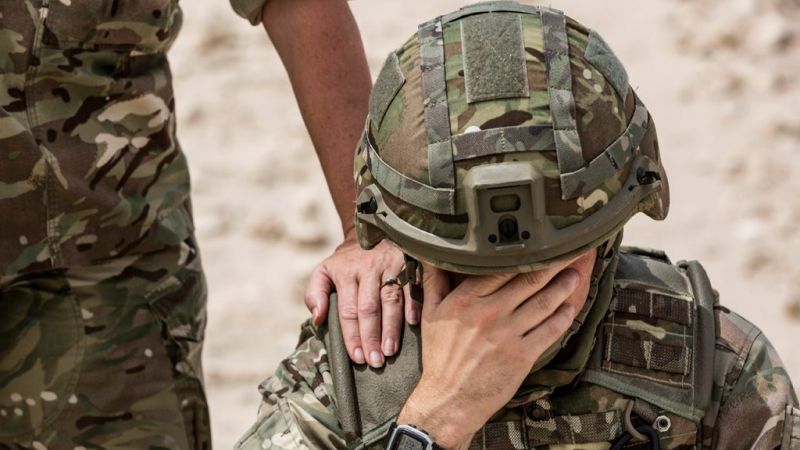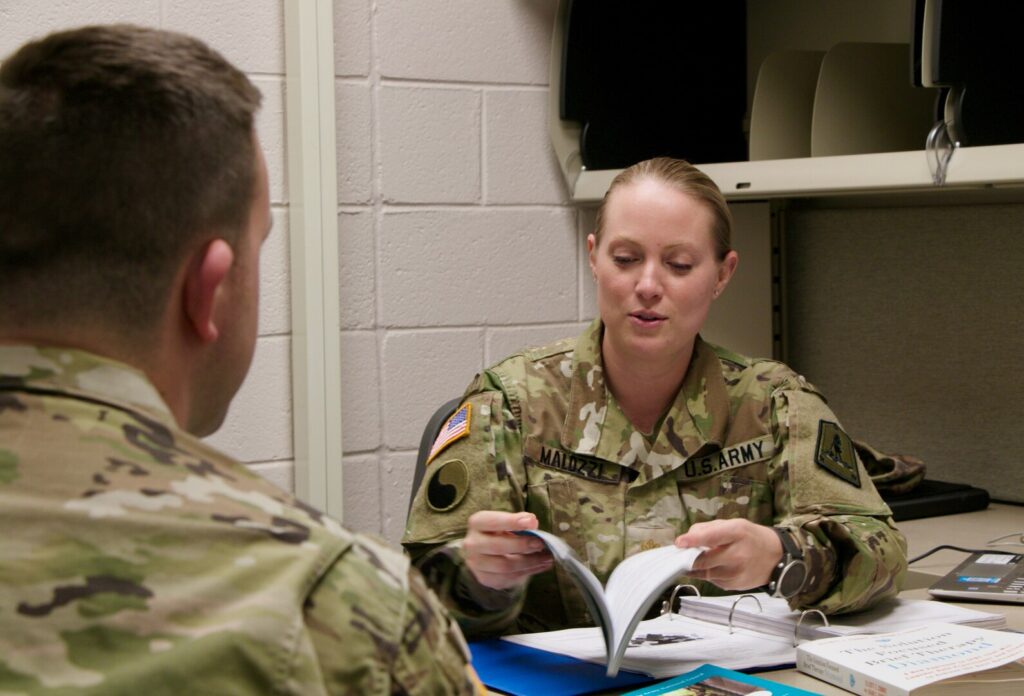Having a history of depression doesn’t automatically disqualify someone from joining the Army, but it does depend on the severity, duration, and treatment of the condition. Each case is usually assessed individually.
In general, the UK Ministry of Defence (MOD) has specific medical standards that applicants need to meet. Individuals with a history of mental health conditions, including depression, may be assessed on a case-by-case basis. Some factors that might influence eligibility could include:
- Severity and duration of depression
- Whether treatment was sought, completed, and successful
- How long ago the episode(s) occurred
- Any ongoing medication or therapy requirements
- Whether there have been recurrent episodes
The MOD’s main concern is ensuring that individuals joining the military can handle the physical, emotional, and psychological demands of service without their health issues impacting their ability to perform duties or posing risks to themselves or others.
How does the UK MOD set Army recruitment medical standards?

The UK Ministry of Defence (MOD) sets medical standards for Army recruitment to ensure that candidates are fit for military service and capable of performing their duties effectively. These standards are designed to safeguard the health and well-being of recruits and to ensure that they can withstand the physical and mental demands of military life.
The medical standards for Army recruitment are established based on extensive research, medical expertise, and considerations specific to the demands of military service. They encompass various physical and mental health criteria that candidates must meet to be considered for enlistment.
The process involves a comprehensive medical examination conducted by qualified medical professionals, usually at an Army Assessment Centre or during the recruitment process. This examination assesses a candidate’s overall health, including:
Physical fitness
Candidates undergo evaluations to determine their physical capabilities, including strength, endurance, flexibility, and overall fitness levels. This assessment may involve tests such as a physical fitness test, vision and hearing assessments, and checks for specific medical conditions.
Medical history
Recruits are required to provide detailed information about their medical history, including any past illnesses, injuries, surgeries, or ongoing medical conditions. This information helps in evaluating the candidate’s suitability for service.
Mental health
Evaluation of mental health is also a crucial aspect of the medical assessment. Candidates are assessed for psychological well-being, resilience, and ability to cope with the stressors associated with military life. This evaluation may include interviews and questionnaires conducted by mental health professionals.
Specific medical standards
The MOD has specific guidelines outlining medical conditions that may disqualify candidates from military service or require further assessment. These standards cover a wide range of conditions, including but not limited to, cardiovascular issues, respiratory problems, musculoskeletal conditions, and mental health disorders.
The standards are periodically reviewed and updated by medical experts within the MOD to ensure they remain relevant and aligned with the evolving requirements of the Armed Forces.
It’s important to note that meeting the medical standards is essential for entry into the military, as certain medical conditions or limitations may disqualify individuals from enlistment or require further medical review.
Candidates who do not meet the initial medical criteria may be considered on a case-by-case basis, and exceptions or waivers might be granted in certain circumstances, depending on the nature and severity of the condition and the specific requirements of the role within the Army.
What influences UK Army eligibility with a history of depression?

A history of depression can influence a candidate’s eligibility for joining the UK Army due to the potential impact it may have on a person’s ability to perform military duties effectively and cope with the demands of service life. The Ministry of Defence (MOD) has specific medical standards in place regarding mental health conditions, including depression, when considering eligibility for enlistment.
Factors that influence UK Army eligibility with a history of depression include
Severity and Recency
The severity of the depression and how recent the episode(s) occurred are significant factors. A single, mild episode of depression that occurred years ago might be viewed differently from recurrent or severe episodes that happened more recently.
Treatment and Stability
The type of treatment received, its effectiveness, and the stability of the individual’s mental health condition are considered. If a candidate has received therapy, counseling, or medication and has shown stability without significant symptoms for a considerable period, it might positively influence their eligibility.
Functional Impairment
The impact of depression on the individual’s daily functioning, work, relationships, and ability to perform under stress will be assessed. If depression significantly impairs the ability to function effectively in a military environment or poses a risk to the individual or others, it might affect eligibility.
Recurrence Risk and Resilience
The likelihood of a recurrence of depressive episodes and the individual’s resilience in managing stressors associated with military service are evaluated.
Specialist Medical Assessment
The MOD conducts specialist medical assessments to evaluate candidates with a history of depression on a case-by-case basis. This involves reviewing medical records, assessments by mental health professionals, and considering individual circumstances before making a decision.
It’s important to note that the MOD’s stance on mental health conditions, including depression, is to ensure the well-being of recruits and their capability to meet the demands of military service. The aim is not to discriminate against individuals with a history of mental health conditions but to ensure that those entering military service are medically and mentally fit to fulfill their duties effectively while safeguarding their own well-being and that of their colleagues.
How does the UK Army assess candidates with past depression?

The UK Army assesses candidates with a history of past depression through a comprehensive and individualized medical assessment process. When applicants disclose a history of depression, the Ministry of Defence (MOD) conducts a thorough evaluation to determine their eligibility for military service.
Candidates are required to provide accurate details about their medical history, including past mental health issues, treatments received, duration of the condition, and any ongoing medication. This includes completing a medical questionnaire as part of the recruitment process, with specific inquiries about mental health, such as past depressive episodes and treatments. Qualified medical professionals, including mental health specialists, conduct a specialist medical assessment, reviewing the candidate’s medical records and potentially contacting their healthcare providers for additional information.
Interviews with mental health professionals or medical officers aim to delve deeper into the nature and impact of past depressive episodes, treatment history, current mental health status, and functional ability. The MOD assesses stability, the potential impact on military functioning, and the risk of recurrence, making decisions on a case-by-case basis. Final determinations on fitness for service consider the individual’s overall medical and mental health status, their capacity to meet military demands, and their well-being in a high-stress environment.
FAQ’s
What does the Army do for depression?
The Army provides mental health support services, including counseling and therapy, to help soldiers cope with depression.
Can I join the UK Army with mental health problems?
The eligibility criteria consider the severity, treatment, and impact of mental health problems. Each case is assessed individually.
What mental illnesses disqualify you from the military?
Certain severe mental illnesses like schizophrenia or bipolar disorder may disqualify individuals due to their potential impact on duty performance and safety.
Can I join the military if I take antidepressants?
The use of antidepressants doesn’t automatically disqualify individuals from joining the military, but it depends on various factors and is evaluated on a case-by-case basis.
Can I be on antidepressants in the military?
In some cases, individuals already in the military can continue their service while on antidepressants, but it’s typically closely monitored and evaluated by military healthcare professionals.
How much disability is depression in the army?
The degree of disability for depression in the army is determined based on the impact it has on an individual’s ability to perform duties, and it varies case by case.
Final Words
In conclusion, joining the UK Army with a history of depression isn’t entirely ruled out, but it depends on various factors. The Army takes mental health seriously and considers each case individually. People with past depression should reach out to Army recruitment offices or medical personnel for the most current information. It’s important to be honest about mental health history during the enlistment process.
The Army aims to ensure that recruits can handle the demands of service without endangering themselves or others. Overall, while having a history of depression might pose challenges, individuals can seek guidance to understand their eligibility for Army service.

